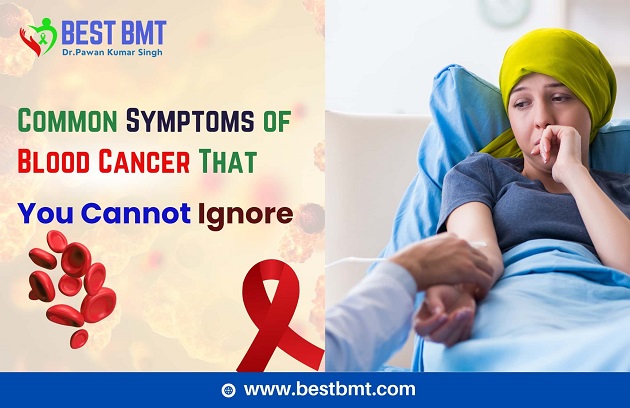Blood cancer is a serious condition that affects the blood, bone marrow, or lymphatic system. It often goes unnoticed until the disease has progressed, making it crucial to recognize the symptoms early. Knowing what to look out for can make a big difference in getting the right treatment on time. In this blog, we’ll review some common symptoms of blood cancer that you should never ignore.
1. Persistent Fatigue
Feeling tired after a long day is normal, but if you’re constantly exhausted, even after plenty of rest, it could be a sign of blood cancer. This type of fatigue differs from everyday tiredness—it’s overwhelming and doesn’t get better with sleep. Blood cancer can cause your body to produce fewer healthy blood cells, leading to anemia and making you feel weak and tired all the time. If you find yourself struggling with extreme fatigue, it’s important to speak with a doctor.
2. Frequent Infections
Our immune system relies on white blood cells to fight off infections. Blood cancer can weaken your immune system by reducing the number of healthy white blood cells, leaving you more prone to infections. If you’re getting sick more often than usual, or if infections seem to take longer to clear up, this could be a warning sign. Frequent infections that don’t respond well to treatment should not be ignored.
3. Unexplained Weight Loss
Losing weight without trying might sound like a dream come true for some, but it can be a serious sign of blood cancer. Sudden, unexplained weight loss is often one of the first symptoms people notice. Blood cancers can increase your metabolism or cause your body to burn more energy than usual, leading to weight loss. If you notice that your clothes are getting looser without any changes in your diet or exercise routine, it’s time to see a doctor.
4. Easy Bruising and Bleeding
If you find yourself bruising easily or bleeding more than usual from minor cuts, it could be a sign of blood cancer. This happens because blood cancers can affect the blood’s ability to clot properly. You might notice that you get bruises without any clear cause, or that small cuts take longer to stop bleeding. Gum bleeding and frequent nosebleeds are also common. These symptoms should prompt you to seek medical advice.
5. Swollen Lymph Nodes
Lymph nodes are small, bean-shaped glands that are part of the lymphatic system, which helps fight infection. When these glands swell, it can be a sign of blood cancer, particularly lymphoma. Swollen lymph nodes often appear in the neck, armpits, or groin and may feel tender or firm. While swollen lymph nodes can be caused by infections, if they remain swollen for an extended period, it’s important to get them checked out by a healthcare professional.
6. Night Sweats and Fever
Experiencing night sweats that soak through your pajamas and sheets or having frequent fevers with no clear cause can be symptoms of blood cancer. These symptoms occur because the body tries to fight off the abnormal blood cells. Night sweats are often drenching and can be quite distressing. If you’re waking up in the middle of the night drenched in sweat or experiencing unexplained fevers, it’s important to consult with a doctor.
7. Bone Pain
Blood cancer can cause pain in the bones or joints. This pain is often felt in the back, hips, or ribs and can vary from a dull ache to sharp discomfort. The pain is caused by the abnormal cells multiplying in the bone marrow, leading to pressure and discomfort in the bones. If you’re experiencing persistent bone pain that doesn’t seem to have a clear cause, it’s a good idea to seek medical attention.
Conclusion
Recognizing the symptoms of blood cancer early can be life-saving. If you or someone you know is experiencing any of these symptoms, it’s important to seek medical advice as soon as possible. Don’t wait—early detection can lead to better treatment outcomes. If you’re concerned about your symptoms, consider scheduling a Hematologist Appointment to get the care you need. Blood Cancers experts are hematologist and they are different from regular oncologist.

